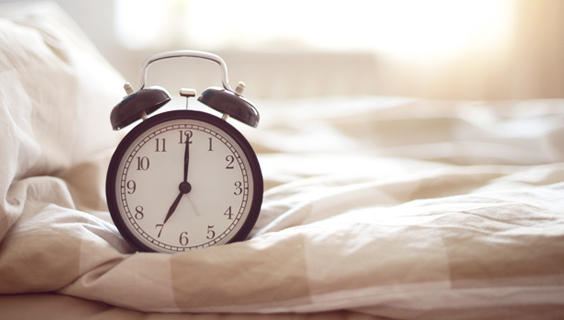Sleep is Not Only for the Weak

Have you found yourself struggling for sleep? Well, if the answer to that question is yes, you are not alone. Many teens do not get enough sleep for various reasons; some reasons why adolescence lack sleep include homework, stress, and sports. Most high school students participate in extracurricular activities, which require after school hours. In addition, teens then go home, do hours of haunting homework, and are expected to go to sleep at a reasonable hour.
Do teens need sleep? Obviously! Do they get enough of it? Of course not. In fact, according to sciencenews.org, Janet Raloff says that only 7.6% of teenagers meet the recommended amount of sleep. The 9.5 hour sleep recommendation is almost impossible to achieve because of our circadian rhythm. One function of the circadian rhythm is to tell our bodies when to sleep. As reported by Kidshealth.org, melatonin, a brain hormone, is produced later at night for teenagers opposed to adults or children. Moreover, expecting adolescence to go to bed at 8:30/9:00, and to wake up at 6:00/6:30, to attain sufficient sleep, is an unrealistic expectation.
Being one of the many teens who struggle with sleeping enough, I have created a guide to enhance the sleep you can get. The first thing I immediately put on my list is power naps! Power naps are when you sleep, but wake up before deep sleep is reached. I recommend taking the extra five or ten minutes your teachers sometimes give you at the end of class to take these naps, or to even take them during free periods. As stated on sleepfoundation.org, power naps improve alertness and performance without leaving you groggy and does not interfere with nighttime sleeping.
The second sleep aid I put on my list is doing as much as possible at night. This includes getting out your outfit, showering, and anything else that can be done before bed. Because teens are night owls, getting these few things done at night, while awake, will enable you to gain a little more sleep in the mornings.
The third and final tip on my list is to try and make your brain tired at night. What helps me fall asleep is reading, or listening to music. I can recall countless times where I have fallen asleep reading a good book, but can not recall any time where I have fallen asleep on my phone. Harvard Health claims that the blue light emitted by smartphones interferes with melatonin production. Lack of melatonin at night can make it harder to fall asleep and difficult to stay asleep. By using these three tips, you will sleep like a baby. Good luck, and remember that sleep is not only for the weak.

Hannah Baxer • Nov 22, 2017 at 11:27 am
love it